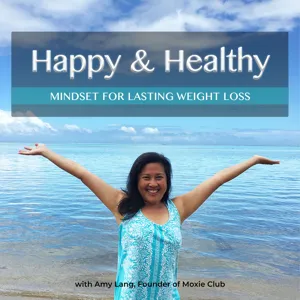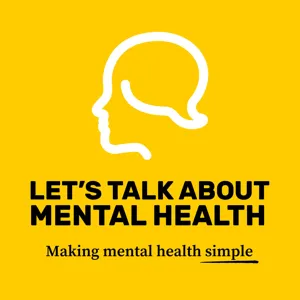Podcast Summary
Exploring the Connection Between Racism and Brain Health: Researchers investigate how racism impacts the brain, contributing to health disparities for Black people and other minorities. By understanding the brain's response, they aim to develop coping mechanisms and improve health outcomes.
Researchers are exploring the connection between racism and brain health. Black people and other minorities face greater health risks, and scientists are investigating if the brain's response to racism could be a contributing factor. Nate Harnett, an assistant professor at Harvard Medical School, studies the brain's reaction to traumatic events, including those related to racism. He collaborates with Nagar Phani, a clinical neuroscientist at Emory University, to understand both the systemic and individual impacts of racism on the brain. Racism is a form of trauma and a system of oppression that affects people based on their race, ethnicity, or skin color. Measuring the impact on the brain is complex, and researchers are using various methods, such as tracking inequities in neighborhood resources, to study the issue. By understanding the brain's response to racism, researchers hope to develop ways to help individuals cope and improve overall health outcomes.
Studying the Connection Between Racial Discrimination and Health Disparities: Research shows individuals who experience racial discrimination have brain changes linked to heightened fear and hyperarousal, contributing to mental and physical health disparities.
Research by Nate and Nagar reveals a connection between experiencing racial discrimination and the development of health disparities, including psychiatric disorders like PTSD. While it's challenging to directly study redlining and its impact on the brain through neuroimaging, researchers can examine proxy measures and outcomes of structural racism. Their findings suggest that individuals who have experienced racial discrimination exhibit brain changes associated with heightened fear and hyperarousal, similar to those with PTSD. This research underscores the importance of addressing systemic racism and its impact on mental and physical health.
Brain's emotional regulation in response to racial discrimination: Racial discrimination triggers emotional regulation in vmPFC, adaptive in short term but can lead to long-term degradation and negative effects.
While people with PTSD have under-activation in the ventromedial prefrontal cortex (vmPFC), a brain area responsible for regulating emotions and the amygdala, those who experience racial discrimination exhibit increased activation in this area. In the short term, this emotional regulation is adaptive, helping individuals navigate challenging situations. However, chronic activation of the vmPFC can lead to structural degradation and erosion, particularly in regulatory areas of the brain. This constant emotional regulation in response to racist stressors can put a heavy burden on the brain and potentially contribute to long-term negative effects. It's important to note that the brain does not come with a free lunch – constant activation of certain areas can lead to both short-term adaptations and long-term consequences.
The impact of discrimination on health: Constant discrimination and racism can lead to negative health outcomes like cardiovascular disease, diabetes, and Alzheimer's disease due to the body's stress response, resulting in reflexive coping behaviors that are not health-oriented.
Constant exposure to discrimination and racism can lead to negative health outcomes, including cardiovascular disease, diabetes, and even Alzheimer's disease. This is due to the body and brain's attempt to regulate stress, which can result in increased effort expenditure and structural degradation in regulatory areas of the brain. Over time, this can lead to reflexive coping behaviors that are not health-oriented, making individuals more vulnerable to various health problems. Nagara's research highlights this connection, showing that the constant stress of discrimination can contribute to these downstream health issues. It's important to note that these diseases are not directly related to the brain but are influenced by the brain's response to chronic stress.
Structural and institutional inequities impact brain changes in emotional regulation and PTSD: Equity disparities can lead to different brain structures and functions in emotional regulation and PTSD, with potential variations among racial and ethnic groups, affecting predictive power of brain imaging data.
Structural and institutional inequities can lead to different brain changes when it comes to emotional regulation and PTSD. For instance, in some cases, there might be lower brain volume or integrity in certain regions associated with emotional regulation. In contrast, older individuals might exhibit greater brain activity, suggesting better ability to regulate themselves. Furthermore, the effects of these inequities can vary among different racial and ethnic groups. Recent trauma survivors, for example, may display distinct brain connections related to PTSD depending on their race or ethnicity, which can be attributed to the structural inequities between these groups. These disparities can even impact the predictive power of brain imaging data in identifying individuals at risk for PTSD. Historically, research on racism and its relationship to PTSD has faced challenges in the scientific community, with some results being met with skepticism or resistance. However, it's crucial to continue exploring these connections to better understand the complex interplay between trauma, race, and brain development.
Understanding Racism's Impact on the Brain: Brain research can legitimize racism as a damaging social construct, but care must be taken to avoid biological essentialism. Racism's impact on marginalized communities is known, but medical acknowledgement is still needed.
While there has been long-standing acceptance of the impact of traumatic experiences on mental health, the recognition and validation of racism as a significant stressor with detrimental effects on the brain is still a contentious issue. Brain research providing visual evidence of the toll of racism on the brain can help legitimize it as a damaging social construct, but there is a fine line to walk to avoid biological essentialism. For marginalized communities, the understanding of racism's impact on the brain is often a known fact, but for the medical community, acknowledgement of racism as a potent stressor is still needed. Despite the challenges, the speaker remains hopeful about the potential for societal change.
Addressing Racism: Judicial Activism and Open Conversations: Judicial activism and open conversations in places of power aim to acknowledge racial disparities and inequities, find solutions, and promote equality, reducing racial bias in society.
There has been a notable increase in efforts to address racism and its legal implications through judicial activism and open conversations in places of power. These discussions acknowledge the existence of racial disparities and inequities and aim to find solutions to change them. This shift in perspective is crucial in promoting equality and reducing racial bias in various aspects of society. It's important to continue these conversations and work towards creating a more inclusive and equitable world. This episode of Shortwave from NPR was produced by Rachel Carlson, edited by managing producer Rebecca Ramirez, and featured an interview with Nathan Negar. Easycater, a corporate catering solution, and BlackRock's podcast, The Bid, sponsored this episode. The Bid features BlackRock's Chairman and CEO, Larry Fink, discussing investment challenges and solutions. For more information, visit ezcater.com and thebid.blackrock.com.






